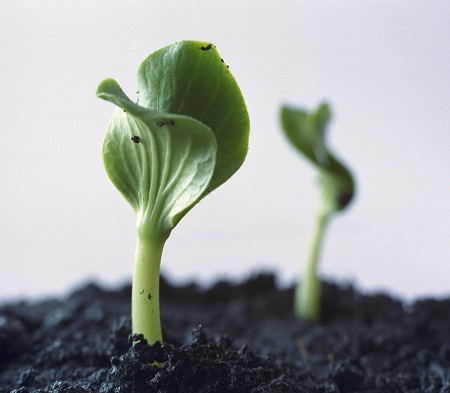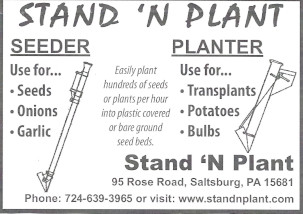
In recent years the organic food industry has boomed in popularity. Nearly 20,000 natural food stores and 73 percent of conventional grocery stores carry organic products, and they accounted for approximately 1-2 percent of total food sales in the United States (USDA Economic Research Service).
What is driving the demand for organic foods? Consumers have identified several advantages to consuming organically grown foods: reduced amount of toxins in the water supply, agricultural sustainability, superior taste, and health benefits. In fact, according to the Organic Trade Association, 39% of the U.S. population uses organic products. Growers have embraced the shift to organic too because of increased public demand for organically grown food. In addition to price incentives, growers are switching to organic methods of production because they are believed to better preserve soil and beneficial microorganisms; there are no hazardous waste disposal issues associated with organic products; and organic production has the added benefit of increased personal safety and reduced liability during application of organic pest control and fertilization products to the crops.
The growers embracing organic materials are not just the big players. In fact, agriculture is moving toward smaller farms. A small farm is defined as any operation where the produce sold generates at least $1,000 in receipts. It is speculated that this change in farm size is not from large farms breaking up but rather individual growers expanding their hobby into a small truck farm operation or a farmer’s market business.
How it Works
So how does the organic system work? Sometimes you will see products with the USDA Organic sticker. This sticker means that the product has passed the scrutiny of the National Organic Program (NOP). This program is the umbrella program overseen by the U.S. government. All other organic certifying programs fall under this standard and must meet or exceed these standards. Before a product can be labeled “organic,” a USDA accredited certifier inspects the farm where the food is grown to make sure the farmer is following all the rules necessary to meet USDA organic standards. Companies that handle or process organic foods before they get to your local restaurant or supermarket must be inspected and certified as well.
Products & Emblems
The products used in organic food production can be certified by dozens of organizations. Perhaps the most recognized organic certification organization is OMRI, the Organic Materials Review Institute. OMRI reviews labels and other documents submitted by product manufacturers to determine if they meet the standards for organic production under NOP. If you see these organic certification emblems on a product you can be sure it is truly organic, meaning that it was produced without using most conventional pesticides; fertilizers made with synthetic ingredients or sewage sludge; ionizing radiation; and there are no genetically altered organisms or by-products in the material or any of its ingredients. Moreover, these certifications ensure there are no dangerous levels of toxic heavy metals or microbial pathogens present as well.
The Need
You would think so but there are several complicated issues involved in determining whether a product or ingredient is organic. The sticking point is in defining what is organic. Typically, the term “organic” is meant to describe products or ingredients that are naturally occurring and not man-made, synthetic, or adulterated. For example, according to the organic certification rules, a mineral mined from the earth used in an organic product cannot be treated with another synthetic chemical. This would apply to natural salts like copper sulfate used in micronutrient fertilizer or fungicide formulations. But is a mineral mined from the earth that is bathed in acid to dissolve and remove toxic heavy metals considered organic? According to the rules the answer is no. There are different versions of minerals, some allowed, and others disallowed for use in organic food production. Even heating an ingredient can change its chemical properties and make it unsuitable for use in organic crop use. Therefore, it is necessary to have organic certifiers review products and processes used in organic fields and operations.
Donald Lester is the Director of SaferGro Laboratories, Inc., a Ventura, California based manufacturer of conventional and organic fertilizer and pest control products for home and garden applications.
Related Articles & Free Email Newsletter Sign Up
How to Get Started with Organic Gardening in a Greenhouse
The Benefits of Using Organic Fertilizer & Soil Amendments




Comment here